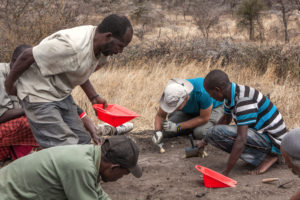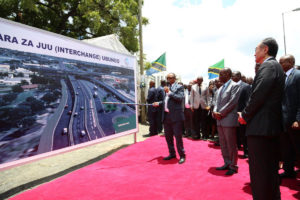CCM reforms and disciplinary measures
The CCM National Congress approved a series of changes to the party’s constitution. The major changes include a reduction of members of the party’s top organs, a reduction of party meeting frequencies and the abolition of unconstitutional posts. The party’s National Executive Committee now has 163 members, down from 388, and the Central Committee has reduced from 34 to 24 members. Other reforms include prohibition of multi-leadership posts within the party.
Addressing the party congress, the party chairman, President Magufuli, said the reforms aimed at boosting efficiency and reducing dependence on financiers. “This is a big party, we have 8.5 million members, we have resources and many sources of income, there is no need for us to continue begging,” he said.
At the same series of meetings, the party’s National Executive Committee stripped 18 senior figures of their party membership, including former Minister Sophia Simba. This move was interpreted widely as a purge of key supporters of Edward Lowassa who had remained in the party after his defection from CCM to Chadema in the run up to the 2015 election. Others, including Central Committee member, Emmanuel Nchimbi, were given “strong warnings”, or “forgiven”, as in the case of the party’s chairman for Dodoma Region, Adam Kimbisa.
In July 2015, Simba, Nchimbi, and Kimbisa as members of CCM’s central committee publicly opposed the decision of the party’s central committee to remove Lowassa from a shortlist of presidential candidates, saying they disagreed with the manner in which the presidential hopefuls were short-listed. (Daily News, The Guardian)
New scrutiny of foreign nationals’ immigration status
A government notice issued in February “invited” all employers and non-citizens working in Tanzania to participate in a formal verification exercise. The notice, issued by the Labour Commissioner in the Prime Minister’s Office, gave all non-Tanzanians currently working in the country 30 days to submit their work permits to the nearest labour office for verification purposes.
In April, the Immigration Department then launched an electronic verification system for use in scrutinising and approving residential permit applications by foreigners coming to live or work in the country. “The system is simple, and offers the opportunity for employers and foreigners already with resident permits to verify their documents and confirm that they have been issued by relevant authorities,” said the department’s Commissioner General, Dr Anna Makalala.
This follows the publication in late 2016 of new regulations governing the employment of non-citizens in Tanzania. The regulations, provide some clarifications on the procedures, timelines and document checklists for processing each type of work permit, including grounds for exemptions.
(Further detail on the new regulations is available from FB Attorneys: http:// fbattorneys.com/legal-update-15-march-2017/) (The Citizen, The Guardian)
Power struggle at Tanganyika Law Society
Tundu Lissu, a senior MP for the opposition party, Chadema, was elected as President of the Tanganyika Law Society (TLS). This followed a power struggle in which senior government ministers threatened to deregister the society if it elected a politician to a leadership role. In the week before his election, Mr Lissu was arrested twice and charged with sedition at a Dar es Salaam court before being released on bail.
According to some TLS members, the government threats against TLS backfired, motivating the society’s members to back Lissu in order to protect their professional independence. Mr Lissu said his victory had nothing to do with his political party, Chadema, and promised to serve all lawyers impartially. (The Guardian)
Ban on alcohol sold in sachets
A ban on selling alcohol in small plastic sachets – known as “viroba”
– came into force in March. Many shops were left with large stocks that they are unable to sell, and customers were forced either to stop drinking or to shift to comparatively more expensive bottled liquor. The cheapest viroba drinks retailed at TSh 500, the cheapest bottles cost around TSh 3,500. Manufacturers asked for more time to adjust to bottling technology.
The Prime Minister, Kassim Majaliwa, said the fondness for viroba was killing large numbers of young Tanzanians, including students, since different brands were available in plastic sachets at virtually every street corner, even close to primary schools.
Banditry in Coast Region
There is widespread concern at a recent wave of killings of local government leaders and police officers in Coast Region. In the most deadly incident, eight officers were shot dead by an armed gang in mid-April.
Commissioner of Police for Training and Operation, Nsato Mssanzya told journalists that the police had launched a manhunt in response, had discovered the criminals’ temporary hideout and in an exchange of gunfire had killed four bandits. He added that there was no evidence to link the ongoing incidents with terrorism, but rather that it seemed a small group of criminals was causing fear in the area.
Home Affairs Minister, Mwigulu Nchemba, said the government has increased the number of police officers and facilities in Kibiti District in Coast Region as part of establishing a special police zone.
It was also reported that political parties were having difficulty persuading qualified candidates to stand for village leadership roles in the region, as several village leaders have also been killed in recent months. (Daily News, The Citizen)
Call for Maji-Maji compensation
The Minister of Defence and National Service, Hussein Mwinyi, said the government is preparing to ask the German government to compensate those who were affected by the Maji Maji war. He was initially responding to questions in parliament, and followed this up in an interview with German media outlet, Deutsche Welle. German soldiers are accused of crimes including forced starvation following the tribal revolt known as Maji Maji between 1905 and 1907.
“Compensation is what we are looking for and there are a few other examples in the African region of countries who have asked for this,” said the Minister. He added that the idea was “to compensate those who lost their lives and of course there are some surviving victims of the war. But those who lost their lives, they have people who could benefit from it.” (Deutsche Welle)



